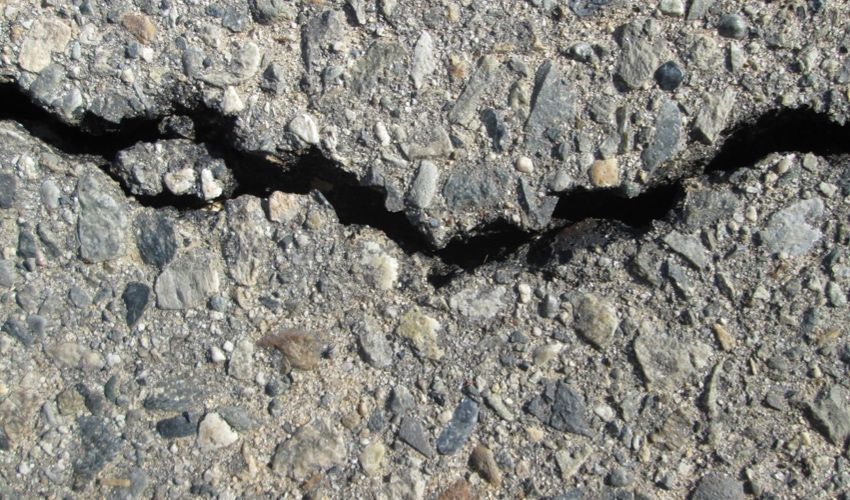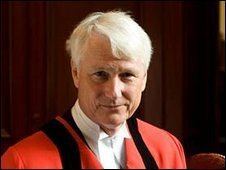


People who get seriously hurt due to problems with Jersey roads are still being denied recompense because Government has repeatedly failed to act on calls for legislative change from a respected judge made almost 20 years ago, it has emerged.
In 2003, Sir Michael Birt asked the States Assembly to bring in a law to allow people to sue the States or parishes should they be injured on a public highway and the authority found to be at fault.
This would bring the island into line with most British-based legal systems, which place a statutory duty of care in their public bodies to maintain highways to a safe standard and make them liable should they fail in that duty.
19 years ago, Sir Michael, who was then Deputy Bailiff, judged on the case Dobson v Public Services Committee.
Mr Dobson had brought an action for damages against the States on the grounds that they had negligently breached their duty to maintain the public highway, after he had been injured having stumbled on a protruding paving slab.
However, while the Royal Court recognised that the Government and parishes have a statutory duty to maintain the roads and pavements, it ruled that there was no common law duty of care should the highways authority fail to uphold its obligation.
But in striking out Mr Dobson’s case, Sir Michael added an important invitation to legislators.

Pictured: Sir Michael Birt: "I would invite the relevant Committee to consider introducing appropriate legislation.”
“As experience has shown in other jurisdictions, this may not be regarded as a satisfactory outcome in current times,” he said. “Individuals who suffer damage through a failure by the highway authority to repair the highway should be entitled to recompense subject to appropriate safeguards for the public or parochial purse.
“I would therefore invite the relevant Committee to consider introducing appropriate legislation.”
He added: “It might well find it helpful to refer the matter to the Jersey Law Commission in the first instance. The Commission will no doubt be able to review the solutions adopted by various jurisdictions throughout the Commonwealth with a view to recommending that which is most suitable in Jersey.”
The Commission duly discussed the topic in 2006, when it concluded that the current law did not need to be clarified.
However, it added: “The court judgment [of Sir Michael] had suggested the time may have come for the law to change for public policy reasons.
“As this would be a political decision, it was considered appropriate for the relevant States Committee to consider the issue, and then, if changes were called for, the Law Commission may be able to assist by way of a review of the scope of changes elsewhere.”
But in the intervening years, the Government has not brought forward such a law.
As a result, any road user injured as a result of a poorly maintained main road, by-road or pavement still lacks a legal remedy and means to receive compensation.
One lawyer calling for change is Advocate David Steenson, who said: “This lack of statutory duty of care does not seem to be in accordance with practice in most first-world jurisdictions."
“Bizarrely, there seems to be a legal route if a road has been repaired but then causes an accident, so there is a disincentive to carry out repairs in the first place and an incentive just to leave things as they are," he noted.
“It seems that the Government and parishes have a licence to leave things to deteriorate."

Pictured: Advocate David Steenson said "it seems that the Government and parishes have a licence to leave things to deteriorate."
Advocate Steenson continued: “It is disappointing to many who have had an accident, which they feel has happened because of negligence, that they do not have a statutory right of redress.
"This issue was first raised by one of the island’s most respected judges 20 years ago, yet nothing has been done.”
The States Assembly did debate the issue in 2011 when St. Martin Deputy Bob Hill, a former policeman, called for action.
However, Members rejected his proposal, requesting that Minister for Transport and Technical Services bring forward appropriate amendments to the law for States approval.
The Treasury Minister of the time, now-Deputy Philip Ozouf, said: "Introducing such a law could result in a rise in insurance premiums as it would encourage future claims as evidenced in the UK.
"The cost of meeting claims is likely to be borne by the States as it is expected many claims would initially fall within the internal insurance policy deductible arrangements.
"This in turn may lead to an increase in the contributions required from departments to the internal fund. Given that the States agreed spending limits up to 2013 in the 2011 Budget, this could only mean a reallocation of resources from other competing priorities or calls upon approved contingency funding."
The TTS Minister of the day, Constable Mike Jackson, said then: "Deputy Hill's claim that there are no financial or manpower implications is not correct, and evidence gathered to date demonstrates that, if the UK model were followed, substantial costs would be incurred assessing, managing and dealing with claims that would require the recruitment of additional staff.
"In addition, there is the risk that the introduction of such a law could encourage the development of a local claims culture."
He added: "The true cost to TTS and the Parishes is unknown.
"The current non-feasence legal situation stops cases coming to the attention of the authorities, thereby preventing an assessment of the quantum of claims from being estimated.
"However, what can be evidenced from the UK is that insurance premiums will inevitably rise to take account of the additional volume of claims that are likely to be received as a result of the proposition.
"Law Officers have indicated that additional and significant legal representation would be required to assist Highway Authorities in defending claims.
"One lesson that can be drawn from the UK experience is that, whilst additional costs are incurred in implementing systems to protect the Highway Authority from third party claims, this does not necessarily result in safer roads or better maintenance.
"The cost of claims and claims management comes from the highway maintenance budget, which, invariably results in less money available for repairs.
"In summary, the financial and manpower implications could be significant for TTS and all the parishes."
Comments
Comments on this story express the views of the commentator only, not Bailiwick Publishing. We are unable to guarantee the accuracy of any of those comments.